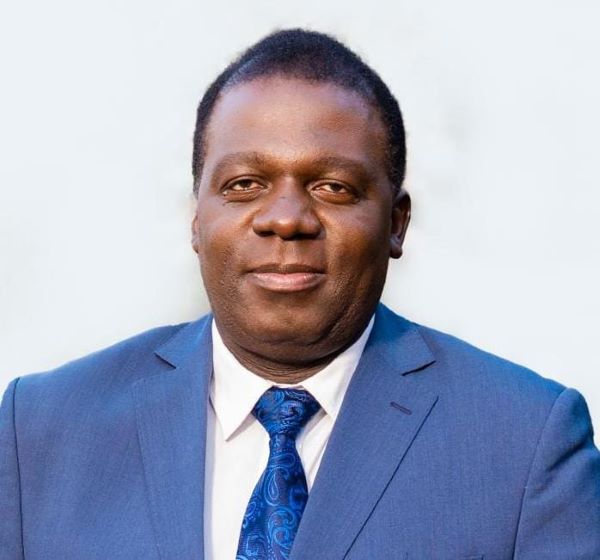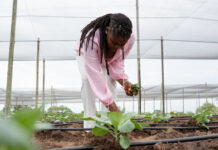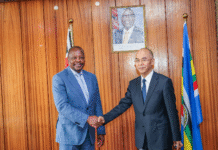ZAMBIA’s quest to become climate change resilient has taken off in earnest and has teamed up with the private sector and bilateral partners to raise resources for adaptation.
Noting the cost of climatic change effects on the economies of Africa, Zambia during the stakeholders meeting in Stockholm, Sweden last June, called for concerted efforts by various players to mobilize resources to migrate into adaptation and encourage green and sustainable economies.
Permanent Secretary at the Ministry of Green Economy and Environment John Msimuko has reiterated the country’s resolve to act and save the environment by building a conducive environment.
Mr. Msimuko speaking on the sidelines of the Green Climate Fund (GCF) Global Programming Conference in Incheon, South Korea stressed the essence of the climate fund for the continent to fight off climate change through financing mechanisms in partnership with donors and the private sector.
“Over the past year, the Ministry of Green Economy and Environment has been tirelessly
working to mobilise climate financing from the Global Climate Fund (GCF), Global
Environment Facility, Climate Investment Funds, the Adaptation Fund as well as various bilateral partners,” a statement from the ministry read, adding:
“We have also been closely working with financial institutions to green the sector in order to make more climate financing available to the private sector. Government is working towards putting in place an enabling environment for the private sector to invest in green financing, green growth and climate related activities.”
Innovative financing mechanisms incorporating multilateral, bilateral and private sector partners remains vital for the successful establishment of a green economy.
Zambia takes cognisance of the increased demand by various interest groups to secure the scarce resources to fight climate change, the Government is designing innovative projects and programmes with the involvement in collaboration with the local communities and the private sector with support from partners including the GCF to create resilience and adaptation.
Although the needs of developing countries in climate investment remain in trillions of US dollars, the available financing to translate the needs into concrete climate investments are meager, accounting for a paltry five percent of the needs, prompting Zambia to moot a ‘home grown initiative’ to plug the deficit.
“The mismatch between the needs and available financing calls for developed countries to enhance the level of financing and developing countries to strengthen the ability to attract diverse sources of finance to climate investments,”
During the COP26 conference last year, it was noted that Many African Developing countries still grapple with resources to counter climate change and are facing challenges in accessing financial resources.
The onset of climatic change effects coupled with COVID 19 that decimated global economies, African Governments have doubled expenditure from their national budgets to adapt as a necessity and solution for survival and avert starvation.
Zambia’s minister for Green Economy and Environment Mr. Collins Nzovu noted that public finance is a critical component in increasing financial action for green and sustainable development to continue unlocking opportunities for mobilising institutional and private investments for greening developing economies.
Representing the African Group of Negotiators at a High Level Political Forum at the Stockholm +50 summit in Sweden, Mr. Nzovu noted that African Developing countries face serious challenges to accessing financial resources from various accredited entities of the financial mechanisms. He called for simplification of modalities for accessing adaptation funds.
African Governments are already spending huge proportions of their national budgets towards adaptation or responding to climate related disasters adding that there is enough scientific justification for the requirement for increasing financial resources for adaptation needs, as outlined in the recent reports of the Intergovernmental Panel on Climate Change (IPCC).
In Africa, he stressed, adaptation remains an absolute necessity and means a difference between survival and starvation for most people, especially in rural communities.
“While we do appreciate and acknowledge that there is a role for the private sector in scaling up financing, we are mindful of the limitations, especially as it relates to adaptation funding.
“We all know the primary motivation for the private sector, although admittedly, they are increasingly factoring climate change in their programming, but there are still limits in how far their altruistic motivations can go,” the Minister added.
The Minister of Green Economy and Environment was part of a High Level Political Dialogue on ways to support partner countries in the implementation of their adaptation priorities.
The meeting, themed: “concrete ways to collectively accelerate the delivery and mobilisation of finance for resilience and adaptation” attracted among other notable personalities, the Minister for International Development Cooperation for Sweden, Matilda Ernkrans and several finance Ministers of Environment from other countries. Others were representatives of the financial mechanisms of different multilateral Environmental Agreements.
Twelve years ago, at a United Nations climate summit in Copenhagen, rich nations made a significant pledge. They promised to channel US$100 billion a year to less wealthy nations by 2020, to help them adapt to climate change and mitigate further rises in temperature.
During the COP15 in Copenhagen in 2009, developed countries-the main polluters, had agreed that at least $100 billion a year – from both public and private sources – would be given to developing nations from 2020 onwards for climate change mitigation and adaptation, though still not actualised.
In 2015, at COP21 in Paris, the developed nations had confirmed and extended the commitment to 2025./








